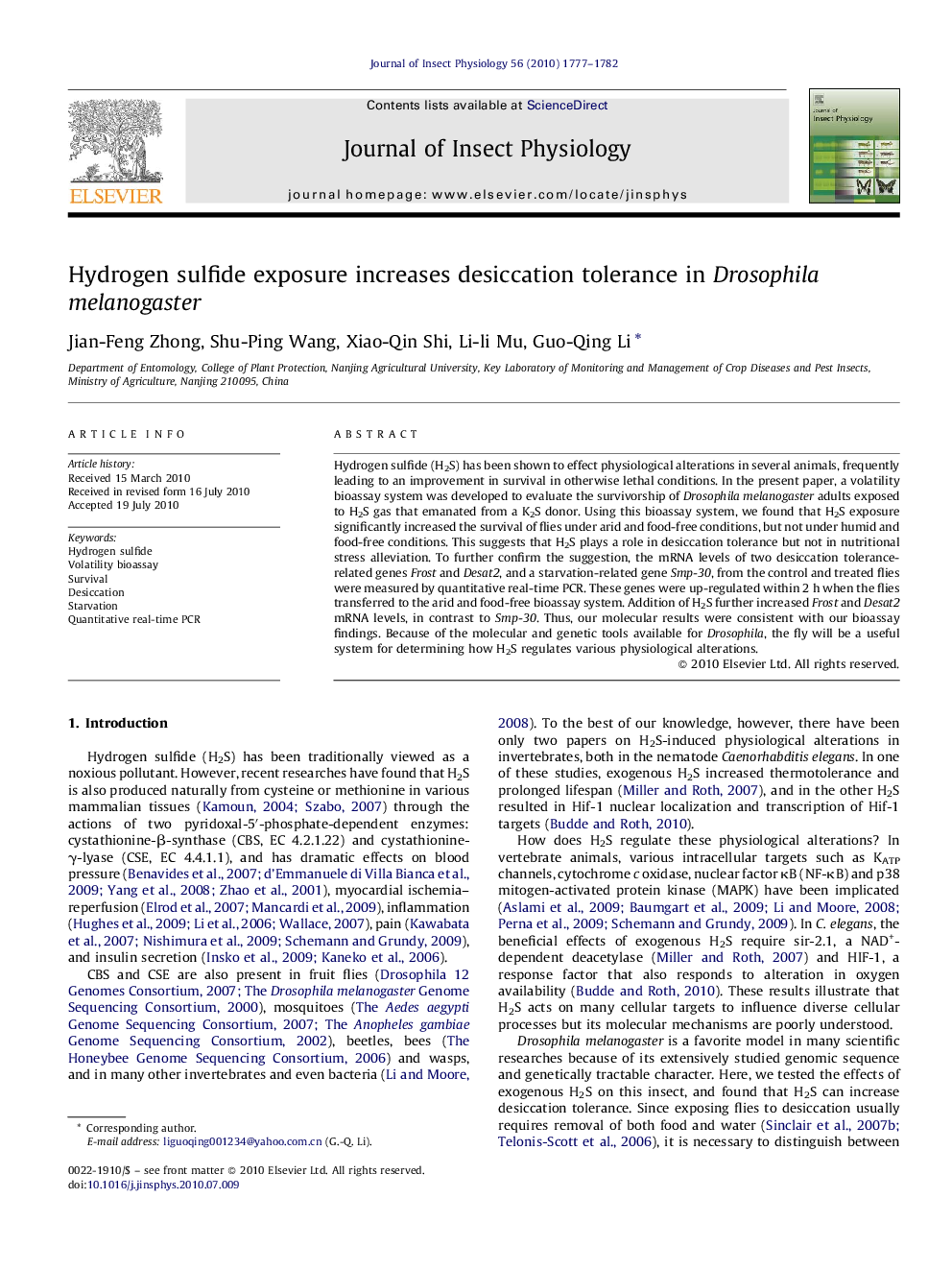| Article ID | Journal | Published Year | Pages | File Type |
|---|---|---|---|---|
| 5922065 | Journal of Insect Physiology | 2010 | 6 Pages |
Abstract
Hydrogen sulfide (H2S) has been shown to effect physiological alterations in several animals, frequently leading to an improvement in survival in otherwise lethal conditions. In the present paper, a volatility bioassay system was developed to evaluate the survivorship of Drosophila melanogaster adults exposed to H2S gas that emanated from a K2S donor. Using this bioassay system, we found that H2S exposure significantly increased the survival of flies under arid and food-free conditions, but not under humid and food-free conditions. This suggests that H2S plays a role in desiccation tolerance but not in nutritional stress alleviation. To further confirm the suggestion, the mRNA levels of two desiccation tolerance-related genes Frost and Desat2, and a starvation-related gene Smp-30, from the control and treated flies were measured by quantitative real-time PCR. These genes were up-regulated within 2Â h when the flies transferred to the arid and food-free bioassay system. Addition of H2S further increased Frost and Desat2 mRNA levels, in contrast to Smp-30. Thus, our molecular results were consistent with our bioassay findings. Because of the molecular and genetic tools available for Drosophila, the fly will be a useful system for determining how H2S regulates various physiological alterations.
Related Topics
Life Sciences
Agricultural and Biological Sciences
Insect Science
Authors
Jian-Feng Zhong, Shu-Ping Wang, Xiao-Qin Shi, Li-li Mu, Guo-Qing Li,
